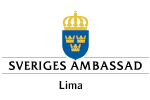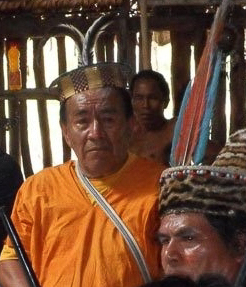 One year on, a team of researchers uncovers the man behind the martyr and the economic roots of the Arab Spring.
One year on, a team of researchers uncovers the man behind the martyr and the economic roots of the Arab Spring.
BY HERNANDO DE SOTO | DECEMBER 16, 2011
One year ago, on Dec. 17, a humble, cowed fruit-seller in a small, provincial city in Tunisia doused himself in paint thinner and set himself alight. The flames that eventually took his life had an effect he could not have foreseen, even in his wildest dreams: Less than a month later, his country's long-ruling tyrant had fled to Saudi Arabia and a democratic revolution would soon sweep across the Middle East. His death made him famous, an icon whose face adorns postage stamps and whose name — Mohamed Bouazizi — now stands for the hopes of a generation.




 05 October 2011 - A meeting was held on 5th October 2011 in New Delhi between Union Minister for Housing & Urban Poverty Alleviation (HUPA) and Culture Kumari Selja and Mr. Hernando de Soto, Peruvian Economist and President, Institute of Liberty and Democracy (ILD), Peru to discuss a project focusing on the legal empowerment of the poor in India. Also present at the meeting were Shri Arun Kumar Misra, Secretary, HUPA, His Excellency, Mr. Javier Paulinich, Ambassador of Peru to India and Mr. Luis Triveño, CEO, ILD.
05 October 2011 - A meeting was held on 5th October 2011 in New Delhi between Union Minister for Housing & Urban Poverty Alleviation (HUPA) and Culture Kumari Selja and Mr. Hernando de Soto, Peruvian Economist and President, Institute of Liberty and Democracy (ILD), Peru to discuss a project focusing on the legal empowerment of the poor in India. Also present at the meeting were Shri Arun Kumar Misra, Secretary, HUPA, His Excellency, Mr. Javier Paulinich, Ambassador of Peru to India and Mr. Luis Triveño, CEO, ILD.


 The ILD, in particular our leaders and researchers who had the good fortune to meet and work closely with don Miqueas MIshari Mofat, were saddened to hear of his passing yesterday. He helped found and advance indigenous causes in Peru and Latin America. A historical leader of the Ashaninka people’s struggles, and founder of AIDESEP (the National Organization of the Amazon Indigenous Peoples of Peru), don Miqueas, continued right to the end, his search for a solution to the economic and social marginalization of the indigenous citizens of the Peruvian Amazon. Since the violent events in Bagua, over two years ago which left 34 dead, don Miqueas approached our institute to seek an ally in this complex struggle. He shared his experience and his vision on the destiny of the indigenous peoples of the Amazon. He found common ground in his untiring search for alternatives to the marginalization of our native brothers and sisters; and for concrete and viable solutions for economic integration, without sacrificing traditions and cultures. Don Miqueas´ legacy will live on in the pursuit of lasting change. He will be missed.
The ILD, in particular our leaders and researchers who had the good fortune to meet and work closely with don Miqueas MIshari Mofat, were saddened to hear of his passing yesterday. He helped found and advance indigenous causes in Peru and Latin America. A historical leader of the Ashaninka people’s struggles, and founder of AIDESEP (the National Organization of the Amazon Indigenous Peoples of Peru), don Miqueas, continued right to the end, his search for a solution to the economic and social marginalization of the indigenous citizens of the Peruvian Amazon. Since the violent events in Bagua, over two years ago which left 34 dead, don Miqueas approached our institute to seek an ally in this complex struggle. He shared his experience and his vision on the destiny of the indigenous peoples of the Amazon. He found common ground in his untiring search for alternatives to the marginalization of our native brothers and sisters; and for concrete and viable solutions for economic integration, without sacrificing traditions and cultures. Don Miqueas´ legacy will live on in the pursuit of lasting change. He will be missed.